Hishigata Pond
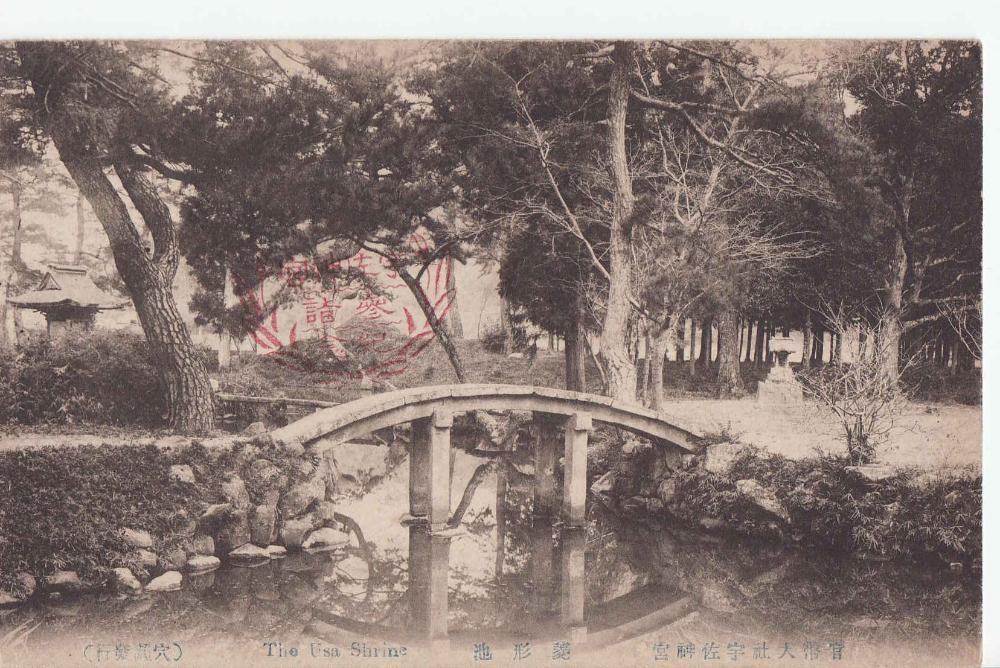
Hishigata Pond sometime before the 1930s
In the center of the Usa Jingu shrine grounds is the picturesque Hishigata Pond. There are several shrines and a noh stage on the small islands in the pond, and the islands are connected by a system of bridges. Though the bridges are usually closed, a walk around the perimeter offers beautiful seasonal views featuring wisteria, lotus flowers, irises, and maples. The large pond is home to a variety of waterfowl, turtles, and colorful koi carp. Small bags of fish food are available for purchase for those who wish to feed the carp.
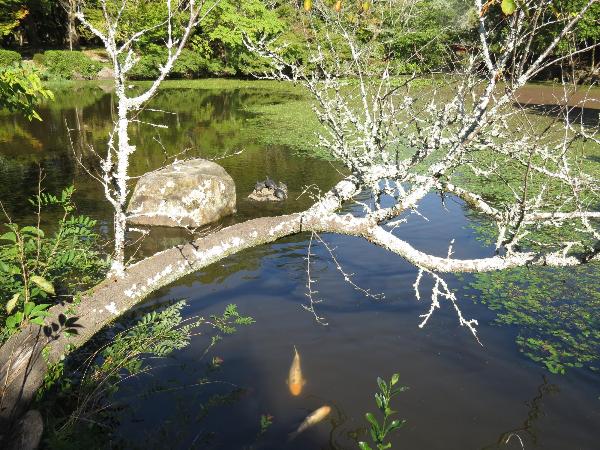
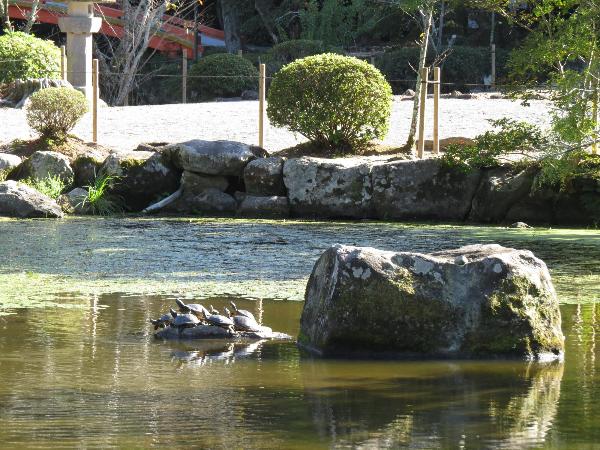
Carp and turtles in the Hishigata Pond
On the southeast bank of the Hishigata Pond is the sacred Goreisui spring. According to shrine legend, Hachiman manifested there to a man named Oga no Higi in 571 and declared himself a guardian of the country. This is often regarded as the beginning of the history of Usa Jingu. The Goreisui area is surrounded by a vermilion fence and marked with a torii gate. The spring water is said to be pure and ever-flowing; it feeds three stone wells protected by bamboo covers. Please note that the water is not suitable for drinking, though some parishioners take it home for use in religious offerings.
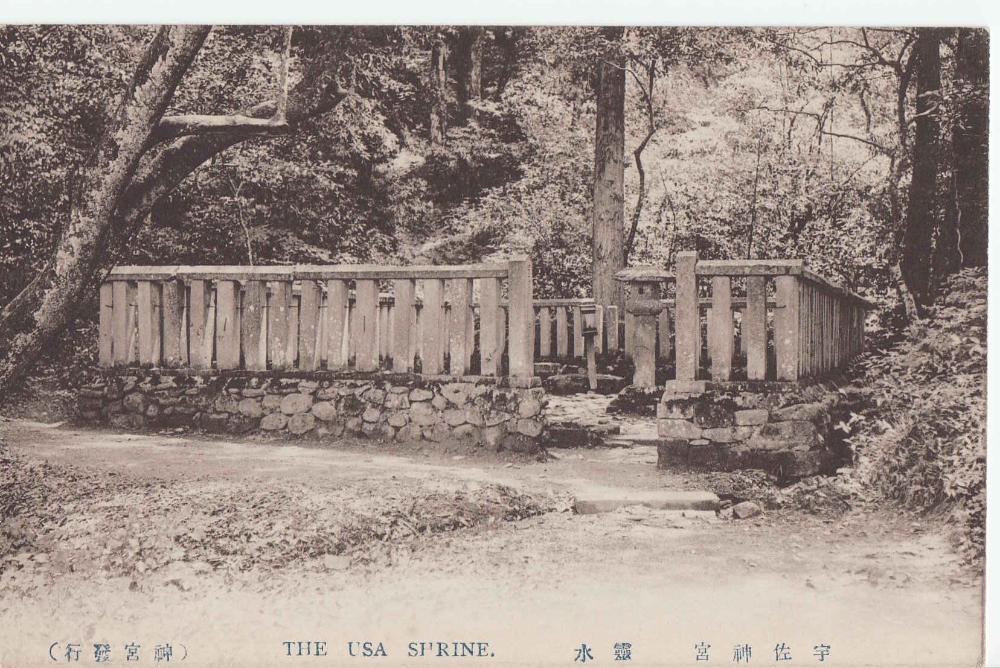
Goreisui spring area sometime before the 1930s
The noh stage on the center island is used for an annual noh production that takes place in October, as well as for other performances. Near the stage is Mokushoso Jinja Shrine, dedicated to a guardian deity of carpenters and other artisans. Another island houses Mikumari Jinja Shrine, where a water deity is worshipped. The Emaden Hall on the west bank of the pond displays ema votive tablets depicting scenes from the legends and history of Usa Jingu.
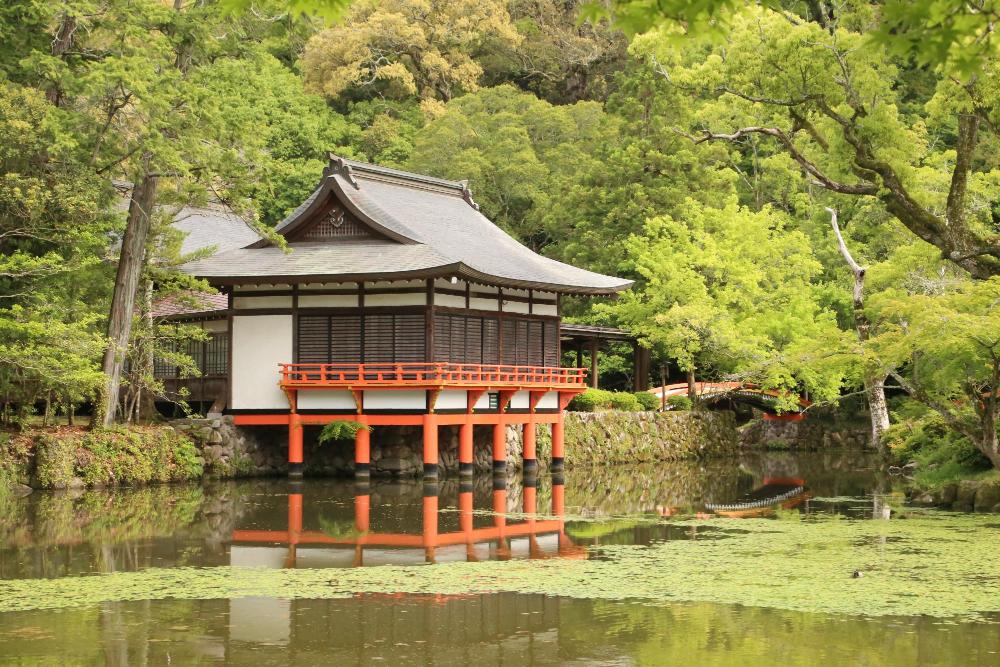
Noh stage
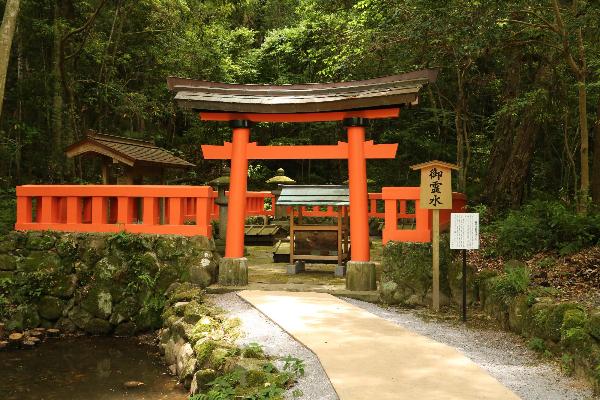
Goreisui spring area
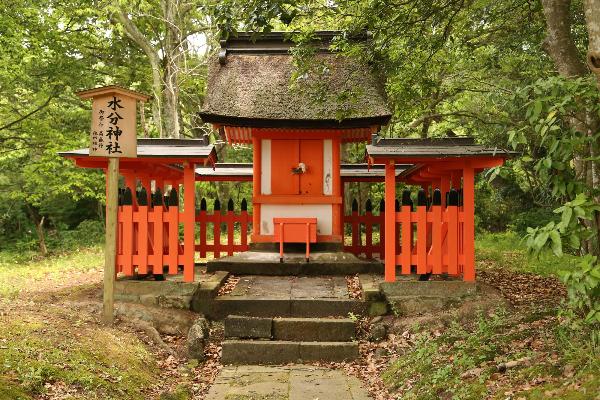
Mikumari Jinja Shrine
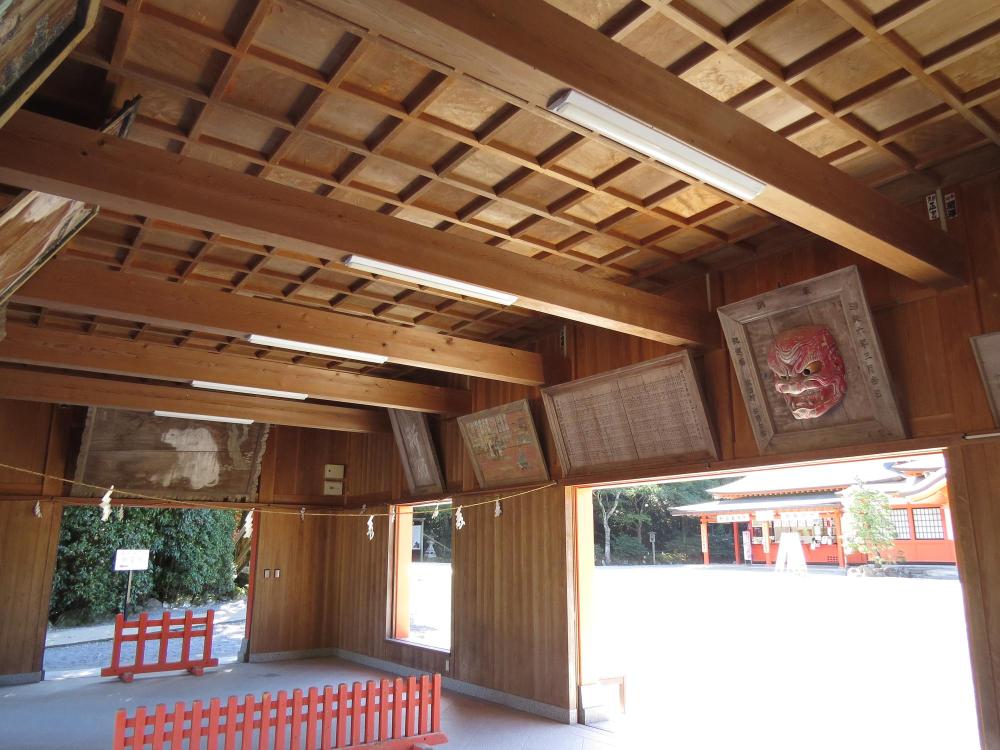
Emaden Hall
The Hishigata Pond was reshaped and expanded into its current form during the Great Showa Reconstruction of the Usa Jingu shrine grounds (1932–1941).
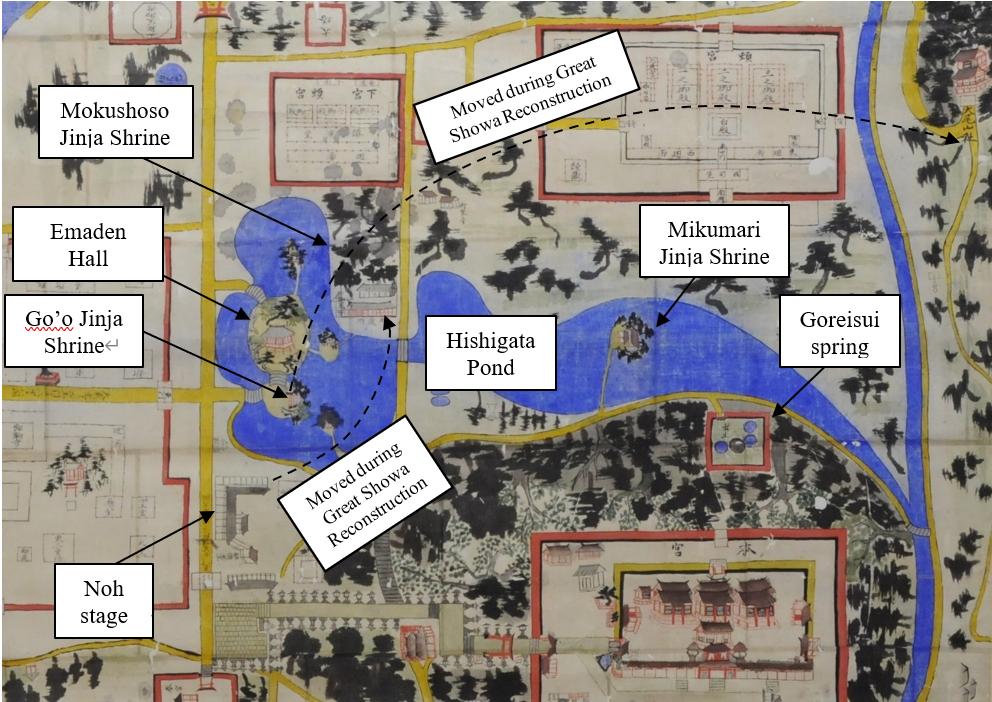
Illustrated map of Usa Jingu Shrine (late nineteenth century)

This English-language text was created by Japan Tourism Agency.
- ページに関する評価
-







更新日:2024年03月18日